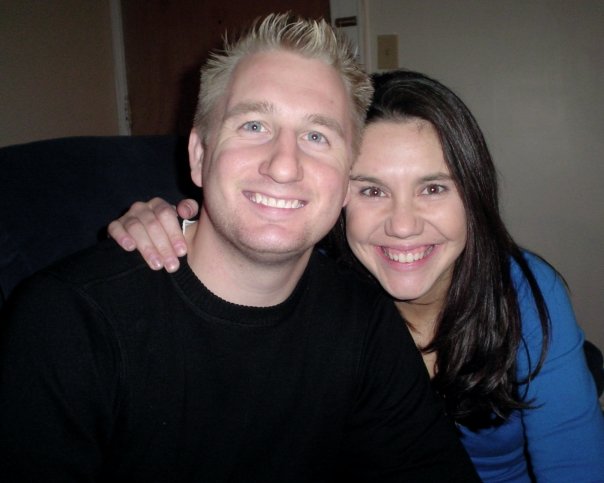There are no limits to what you can accomplish when you are supposed to be doing something else.
Tomorrow (noun) – a mystical land where 99% of all human productivity, motivation and achievement is stored.
Going to start studying at 3:00 p.m…. 3:05 p.m.: Missed it…4:00 p.m. it is.
Due tomorrow? Do tomorrow.
Procrastination. Ah, yes, we’ve all been there: seven hours before the 8:00 a.m. due date of a 12-15 page paper that was casually started yesterday….night…while watching New Girl. Basically, the only content on the page is:
Name
Professor
Course Title
Date
Title
In a handful of unique situations, procrastination may lead to successful completion of a task or project. Some research even says occasional procrastination isn’t all that bad. After all, procrastination is really just a matter of prioritizing and time management. However, whether it’s with chores, college assignments or work tasks, procrastination can be a significant hindrance in one’s reliability and performance. Habitual procrastinators are simply living through life’s experiences. Getting by. Surviving through it and hurriedly moving on to the next task.
Where’s the opportunity for creativity? Where’s the opportunity to evaluate?
Allotting the appropriate amount of time to accomplish a goal opens a gateway for creativity. More time to complete the basic criteria gives one the chance to take a second, maybe third, look at the finished product while considering alternative and creative ways to express the ultimate point. Going that extra mile can sometimes be the difference between a B+ and an A from a professor, or the difference between “Thanks” and “This is great work, thank you!” from a supervisor. For example, getting a head start on the job search will give you the time and patience you need to obtain a job that’s a right fit for you. Starting in advance means you have more time to network with potential connections, more time to search postings and company profiles and more time to explore the various opportunities and avenues available to you such as unconventional job search strategies.
Getting started on a project early also gives one the chance to edit and reconsider aspects of the work once the first draft or version is complete. Hurriedly sending an email to a job recruiter before the job application closes at midnight can lead to grammatical errors, incorrect information, and that embarrassing second email, “whoops, I forgot the attachment.” Now that’s an unfortunate first impression.
On the other hand, taking the time to sit down and craft an email that is clear, concise and correct can lead to tremendous opportunities. Starting ahead means that errors and contradicting points that would, perhaps, go unnoticed are realized and corrected before another set of eyes take a look.
Procrastination and the Job Search
A great example would be the infamous cover letter. If you’ve procrastinated submitting your credentials for a posting, chances are you’ll be submitting a classic, mundane cover letter complete with all the necessary points…the boring, inorganic necessary points. This will not wow a recruiter. In fact, the recruiter, who reads hundreds of cover letters, will immediately realize your disregard to crafting an authentic and unique cover letter specific to the company and, more importantly, the position. Taking the time to prepare a genuine cover letter shows care and interest.
An opportunity to review and evaluate the task in its final stages will show a professor or supervisor that the work was not done simply to check it off the list. It was a priority and that dedication should not go unnoticed. Evaluation provides details and avenues for improvement on future work, too, allowing one to grow and develop as a student or professional.
Procrastination can become a bad habit which can significantly affect the daily routine and attitude of a person. Once one task has been procrastinated, chances are many other important and sometimes time-sensitive priorities will follow suit. Habitual procrastination can become an unhealthy lifestyle and you won’t even realize what you’re missing. Procrastination means spending more money on vacations, taxes and other things. It means staying late at work to finish a project instead of going to happy hour with your buddies.
A popular phrase says, “A lack of planning on your part does not constitute an emergency on mine.” Oh but it does. One person’s procrastination could seriously impact the way another person’s job or team assignment functions and then it becomes this huge, sour snowball effect full of irritated coworkers, annoyed supervisors and potentially negative reviews of the final work.
I won't sit here and pretend that I don't procrastinate because that could not be further from the truth. It is an exhilarating feeling working under pressure, under a deadline. That's the journalist in me. I will say, though, that the key with procrastination is to use it productively. Consider the reason for procrastinating a task:
- I don’t feel like doing it.
- I have other things to do.
- It won’t be that difficult.
- It isn’t really time sensitive.
Consider who your procrastination might affect:
1. My boss.
2. My family/friends.
3. My teammates.
Then, evaluate and determine whether it is beneficial to put off the task. If it actually can wait, while allowing the opportunity and time for at least an evaluation before submission, then by all means, go on a Netflix binge of New Girl. Otherwise, do something today, right now even, that your future self will thank you for.
















